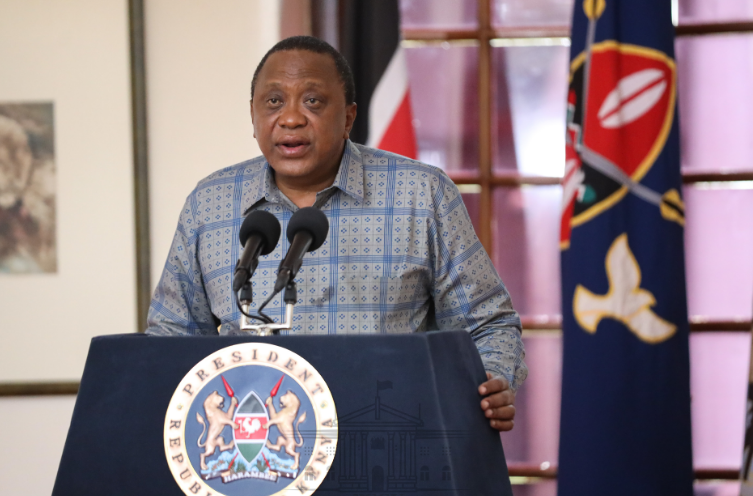
COVID-19: Kenya extends curfew, closure of schools

Kenyan President Uhuru Kenyatta on Saturday announced an extension to the nationwide dusk-to-dawn curfew and other restrictions as the country continues to grapple with rising COVID-19 cases.
The curfew, which was extended by another 30 days, has, however, shifted to 9pm-4am from the previous 7pm-5am to allow Kenyans the “opportunity to enjoy a full-day’s work”.
The President also announced an extension to the order on cessation of movement into and out of the Nairobi Metropolitan Area and the counties of Mombasa and Mandera by a similar period.
Kenyatta, who appeared during a live televised address from State House, Nairobi, revealed that extensive discussions with health experts had taken place to arrive at the decision.
He said that the decision was arrived at after noting that three “irreducible minimums” had not been met to scale back the measures in place.
These minimums are that infections must be contained and number of infections and deaths must be heading downwards, the healthcare system must be prepared sufficiently to take on a surge in infections and the capacity for surveillance and contact tracing must be fully in place countrywide.
“The question we must all ponder together is whether we have met these three thresholds in order to lift the restrictions. Have the cases of infections taken a downward turn? The answer is definitely no. We are seeing an increase. Have we met the second minimum of prepared health systems with isolation? Again, as I said, the answer is no,” Kenyatta said.
Kenyatta wondered, that with the nation’s health institutions overwhelmed, whether Kenyans were ready to care for the sick at home and expose their loved ones to the deadly virus.
Other restrictions to be extended included the closure of bars, all gatherings and international travel. Schools will also remain closed until September with the Ministry of Education directed to announce a new school calendar by mid-August. The Ministries of Education and Health are expected to issue and publicise guidelines on a gradual and progressive return to normalcy in the education sector.
Many Kenyans, struggling under the weight of the restrictions, had hoped that the government will lift the restrictions while others remained firm that the government should not do so due to the pandemic’s threat.
Kenyatta said that while he was in favour of reopening the economy, he would not do it to the detriment of the entire country.
“Some, including myself, wanted to open up now. That was, and is still my desire. I want to open up at the earliest opportunity and get the economy going. More so, as Kenya was ranked the third largest economy in Sub-Sahara Africa this week.”
Kenyatta also announced the lifting of cessation of movement orders imposed on Eastleigh in Nairobi, Old Town in Mombasa and the counties of Kwale and Kilifi.
The decision to lift the orders in the two counties was taken in view of their successful containment of the disease, according to the President. The lifting of these restrictions will take place on October 7 from 4am.
Additionally, the President directed the Interior and Health ministries to form an inter-faith council to work out protocols to reopen places of worship.
The Ministry of Transport was also directed to engage all key stakeholders and develop protocols to guide the resumption of local air travel.
Kenya has so far recorded 2,600 confirmed cases and 83 deaths from the virus.






